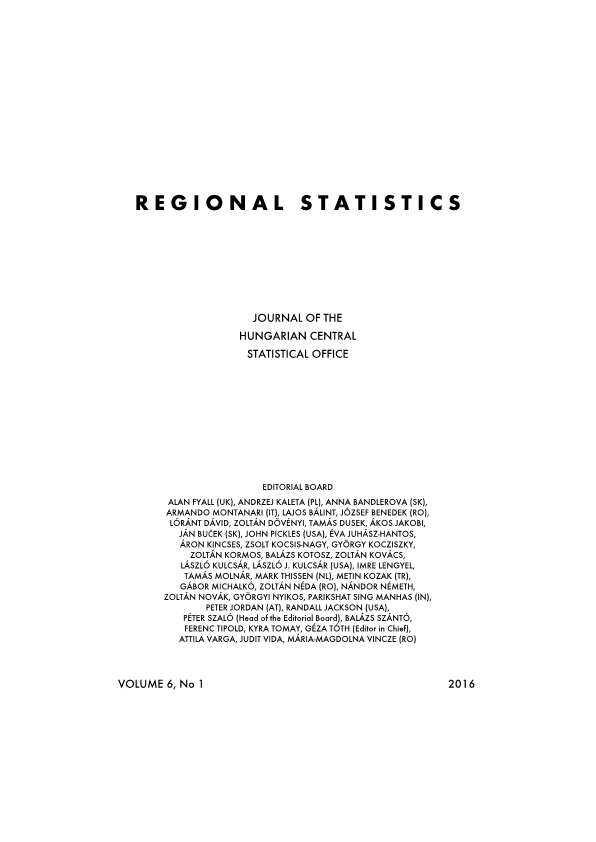Attempts to delineate functional regions in Hungary
based on commuting data
Attempts to delineate functional regions in Hungary
based on commuting data
Author(s): Gábor Pálóczi, János Pénzes, Hurbánek Pavol, Halás Marián, Klapka PavelSubject(s): Social Sciences, Economy, Geography, Regional studies
Published by: Központi Statisztikai Hivatal
Keywords: functional regions; commuting; census data; Hungary
Summary/Abstract: The issue of defining functional regions in Hungary is presented in this paper, which contains detailed methodological description with the help of relevant studies from the Czech Republic and Slovakia. The use of Smart’s measure together with the CURDS algorithm and the relatively new concept of trade-off constraint function with four different sets of parameter values provided four optional solutions for this issue, based on the analysis of daily travel-to-work flows from the 2011 census. The resulting regions correspond to the micro-regional level and give valuable additions to the discussion about regionalization. The paper provides basic descriptive statistics for each of the four variants of functional region systems, which enables their overall evaluation (seeing advantages and disadvantages) and mutual comparison (seeing similarities and differences), and thus facilitates an informed debate on future work in functional regionalisation in Hungary carried out with respect to different purposes.
Journal: Regional Statistics
- Issue Year: 6/2016
- Issue No: 01
- Page Range: 23-41
- Page Count: 19
- Language: English

